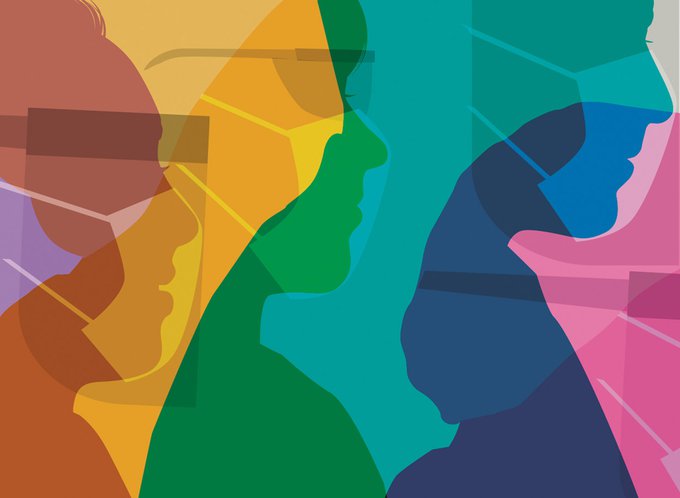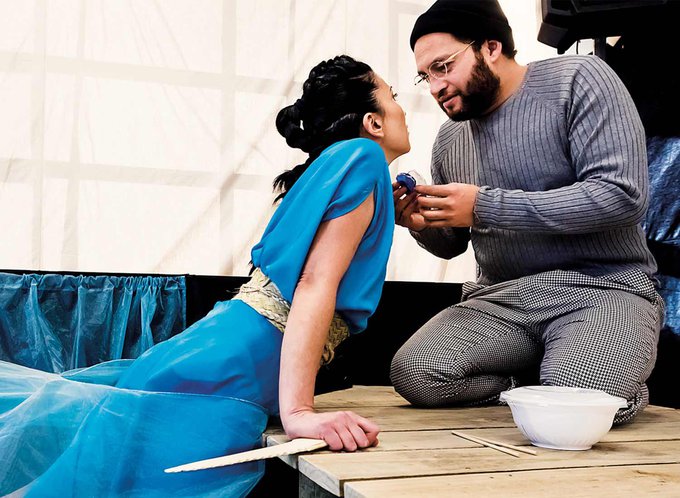We've all heard of the 'brain drain' – the steady exodus of qualified Kiwis overseas, often never to return. But throw in a global pandemic and Aotearoa's more stable political, economic and social infrastructure, and it's easy to see why the trend has reversed into a 'brain gain'.
By Sharon Stephenson
New Zealand is second only to Ireland in the OECD for its proportion of citizens living offshore – somewhere between 600,000 and 1 million at last count. But now an increasing number of high-achieving Kiwis are coming home to roost, bringing with them valuable experience and skills.
2020 might be the year things went sideways for many of us, but it didn’t turn out too badly for Auckland neurologist and MAS Member Dr Viswas Dayal.
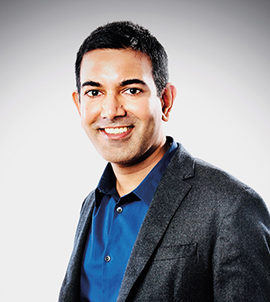
Not only did the 37-year-old finish his PhD at University College London, but he also scored a job in Auckland after five years in the UK.
After completing a medical degree at the University of Otago in 2007 and undertaking specialist neurological training in Auckland in 2015, Viswas started his fellowship at London’s National Hospital for Neurology in 2016. It was supposed to be for 12 months but once that finished he opted to stay on at the hospital, combining work with study for a PhD.
His research involved deep brain stimulation (DBS), particularly for patients suffering from Parkinson’s disease.
“I took advantage of recent technological advances to explore new options to program the stimulation and develop algorithms to improve clinical outcomes and reduce side effects,” says Viswas. “The overall result was positive, with dramatic improvements in many patients”.
Access to experiences
Viswas says there were opportunities he would never have had if he’d stayed in New Zealand.
“The National Hospital for Neurology is the largest DBS centre in Europe, and working in a hospital dedicated to neurology was fantastic. I had access to a volume of patients we don’t see in New Zealand and the opportunity to do cutting-edge research using technology that isn’t available here.”
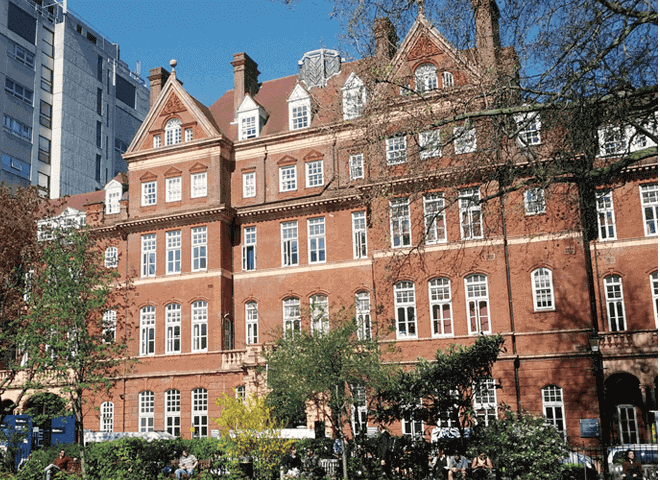
His work at the hospital also provided him with an international platform with opportunities to speak about his research in Paris, Berlin and Los Angeles.
Returning to New Zealand
Although Viswas was settled in London, he’d always planned to come home by the end of 2020. But then COVID-19 hit and “the stars aligned”.
“Lockdown was actually good for me because I was able to finish my thesis without any distraction. The day after I received my PhD, I got a call from Auckland Hospital offering me a job.”
Dr Viswas Dayal
Viswas returned in October last year and started work as a neurologist after two weeks in managed isolation. He now splits his time between Auckland City Hospital and Middlemore Hospital, driving from his family’s home in Albany where he’s currently staying until he finds a central city apartment.
“That’s one thing I’ve noticed since being back – how bad Auckland traffic is! I can spend up to three hours a day driving. I really miss the Tube, which was easy to use. I didn’t even need a car in London.”
Viswas is also missing access to the medical technology he grew used to in the UK.
“I’m hoping to share what I learned, but New Zealand’s DBS technology is a few years behind. It’s a bit frustrating not to have that technology here, but I’m pushing to get it as soon as possible so we can offer our patients a greater level of care.”
Benefits for Aotearoa
Although he’s working harder than he did in London, Viswas admits New Zealand’s better work/life balance is a drawcard.
“The culture here is also much friendlier. People really look out for each other which doesn’t always happen in big cities.”
Dr Viswas Dayal
16,679 Kiwis migrated back to New Zealand in 2020. That's a 379% increase on the previous year.
So is the brain gain a positive thing for New Zealand?
“So many Kiwis go overseas and never come back. But we’ve now got people returning, whether because of COVID or other reasons and bringing a huge pool of talent, resources and experience which we’re able to tap into. That’s a great thing for New Zealand.”
Jumping back across the ditch
On a blue-sky September day – the kind Melbourne does so well – Dr Tessa Gallivan realised she wanted to move home to Christchurch.
“I’d been in Melbourne 10 years and had always planned to come back but not for a few years,” says the 31-year-old GP.
“However, with COVID, we thought it was a good time to make the move now.”
It helped that MAS Member Tessa was on maternity leave and her Australian GP husband John was contracting so was easily able to leave his job. They rented out their Melbourne home, and after two weeks in managed isolation in Auckland, they returned to Christchurch.
Tessa says she wanted to come back to be closer to her family – her father and brother, both doctors, and her lawyer mother – and because of New Zealand’s success with handling the global pandemic.
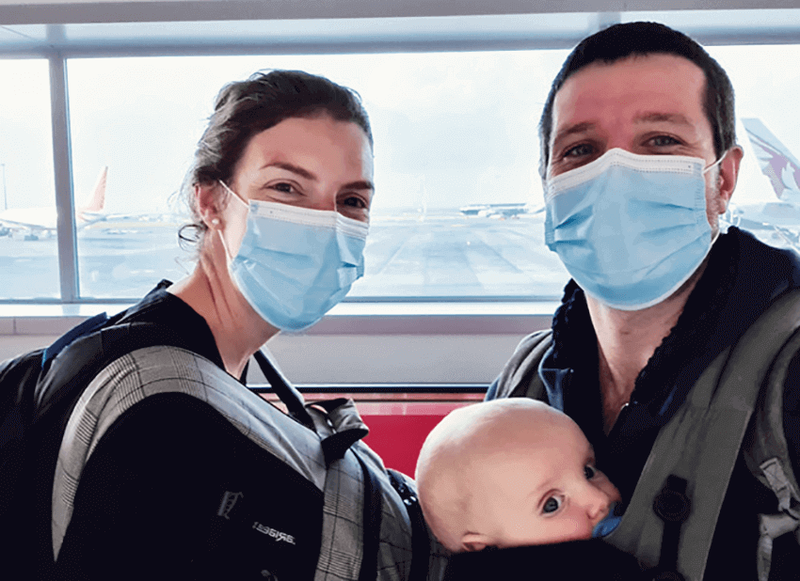
"We were so pleased not to have to wear masks or practise the sort of social distancing that we'd left behind in Melbourne."
A good life
Tessa admits Melbourne has been good to her. Not only did she meet her husband there and buy a house, she also got her medical degree.
"I unsuccessfully applied for Otago Medical School twice – the first in 2007 and again in 2009 after my undergraduate science degree. So I applied to Melbourne and got in. The wages were also good in Australia, enabling us to buy a house."
Melbourne allowed her to work with patients from a wider variety of backgrounds and cultures.
“I was working in outer west Melbourne with a lot of South-East Asian patients. I also enjoyed the opportunity to work with members of Melbourne’s Aboriginal community and the different socio-economic and health disparities that presented.”
That cultural diversity is something Tessa is currently missing, although she says Christchurch is becoming increasingly diverse.
“It’s also improved so much since I last lived here, with lots of cool places for younger people and families. We’re really into the outdoors so are loving the chance to go running up hills and explore the countryside.”
She also believes New Zealand is safer and a great place to raise a family.
“We’ve kept our house in Melbourne so we can always go back one day if we want. We know we’re super lucky to have those choices.”
Exodus from America
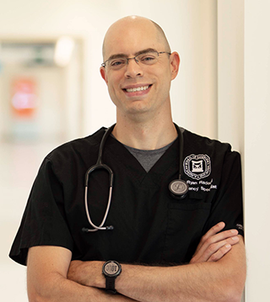
Ask emergency medicine consultant Dr Ryan Radecki why he moved his family from Portland, Oregon, to Christchurch in July, and he barely pauses for a breath.
"Because New Zealand doesn't really have COVID and because of the political upheaval in the US."
The 42-year-old, who graduated from Stanford and Ohio State University, says he's also a fan of New Zealand's "socialised medical system".
“The US healthcare system is broken. It’s low value, inefficient and doesn’t provide equitable care for everyone. I’m finding it far more efficient here, as opposed to the US where we have to provide huge amounts of documentation for each patient because of revenue capture by health companies.
“Studies have shown that, in the US, we spent more time doing documentation than with patients because we don’t get paid if we don’t precisely document patient care.”
More equity in healthcare
It’s given Ryan a good perspective on how different medical systems can be delivered. He also brings insight into clinical informatics, using technology to deliver an information-based approach to healthcare.
“The US has more rapidly migrated to integrated informatics, whereas New Zealand seems to be more fragmented in terms of information being on different systems. I know it’s an issue the Ministry of Health is currently looking at.”
Ryan is enjoying a chance to work in our “more equitable health system” and not having to deal with gunshot wounds as he previously did during five years working in Houston.
“Work is also less intense here, because New Zealand doesn’t have America’s bureaucratic nonsense on top of patient care. There’s also more annual leave, so doctors are less likely to burn out.”
Easy living
On the personal front, Ryan’s wife Annie, a property consultant working remotely for her California-based firm, and their two children, six-year-old Alexander and four-year-old Lydia, have slotted easily into life in Aotearoa.
“We love running in the Port Hills and the kids love their schools. I’m on a five-year work visa and can’t buy a house until I have residency so it’s a bit odd renting after owning our own home in the US but we’re dealing with it.”
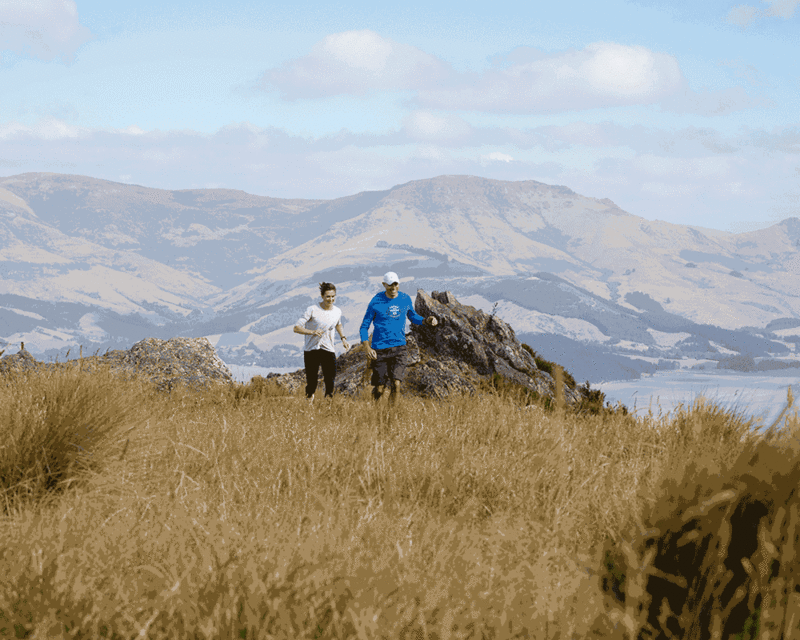
Ryan, who still hosts the monthly Annals of Emergency Medicine podcast he’s been doing for five years, says he’s fielding more and more queries from US medics keen to relocate to New Zealand.
Brand New Zealand has never been stronger, and Brand US has never been weaker.
"Brand New Zealand has never been stronger, and Brand US has never been weaker. There's definitely a brain gain coming from America."
Know someone who might enjoy this?
Professional life
See all-
March 2021
Made for today a century ago
-
March 2021
Smooth sailing for Southern Spars
-
March 2021
A hectic, horrific working holiday
-
March 2021
What's on


